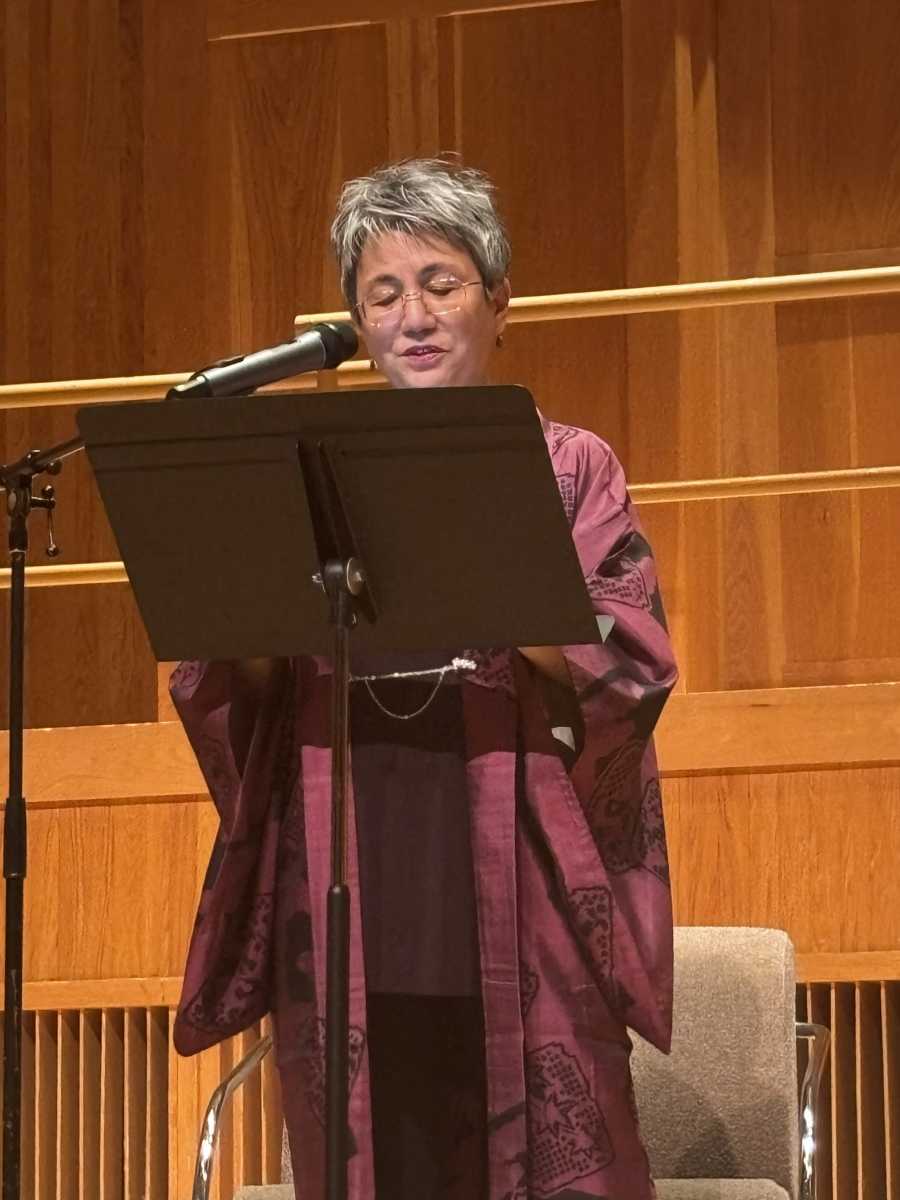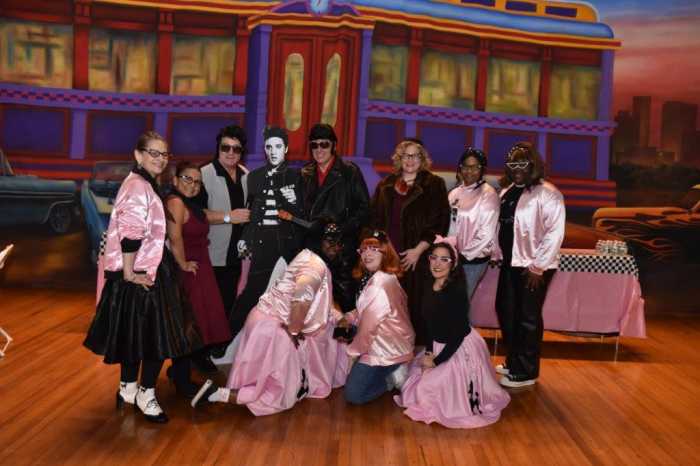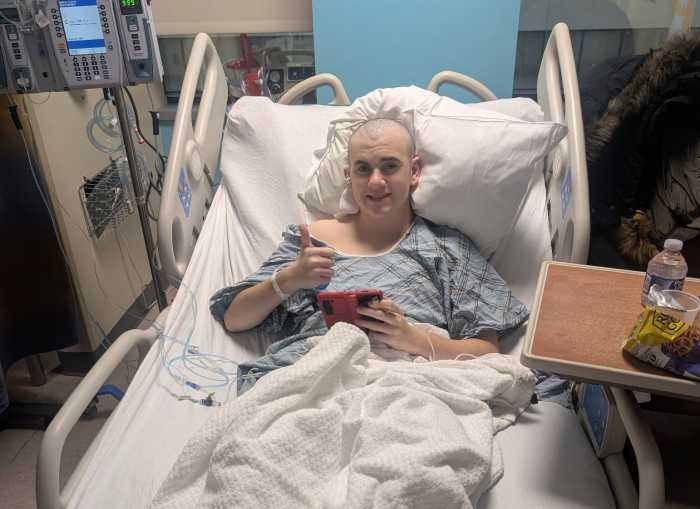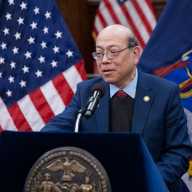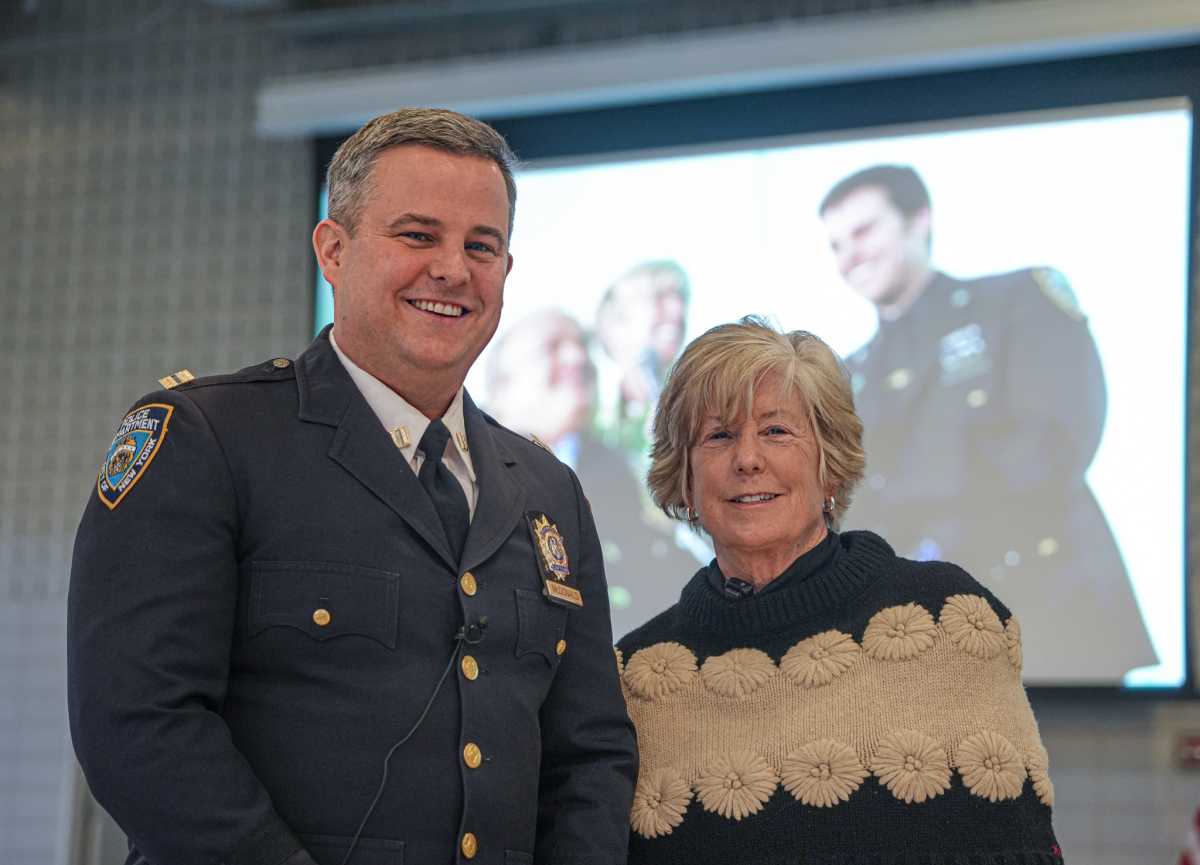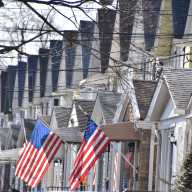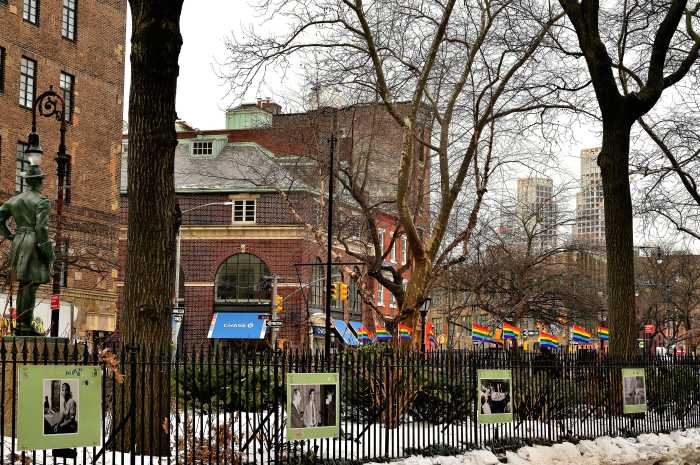Queens College hosted a poetry reading by Kimiko Hahn, a distinguished professor at the Flushing-based college who was recently appointed by the New York State Writers Institute to serve as poet laureate of the state for the next two years.
The celebrated poet read at LeFrak Concert Hall on Oct. 22 and participated in a short Q&A session hosted by her former student, Sonia Arora. Attendees then filtered into the lobby for a reception that included light refreshments and a book-signing for her most recent publication, “The Ghost Forest.”
The 368-page book, which includes her older work as well as 40 new poems, begins with her newest pieces and travels backward in time to her oldest. Her intention, Hahn said, is to take the reader on a journey back to the young woman she was when her work was first published in “We Stand Our Ground: Three Women, Their Vision, Their Poems,” in 1988.
‘Playing with language’
Hahn, 70, the daughter of artists with a love for language, has been creating and exploring different forms of poetry for decades. Born in Mount Kisco, NY, in 1955 to a Japanese American mother, Maude Miyako Hamai, and German American father, Walter Hahn, she spent the first two years of her life in Italy.
Even though she couldn’t understand its meaning, she was drawn to the sounds of the Italian language. Her mother would also read to her in Japanese, a language she eventually learned when she was about 8-years-old.
“Language to me, to my ear, is very playful and fun,” Hahn said. “At an early age, I realized there’s more than one way to say something, and that’s kind of marvelous. That’s magical.”
Growing up in Pleasantville, NY, Hahn describes herself as a “hippie.” She briefly lived in Tokyo, Japan from 1964-65, and after returning to New York she spent her teens involved in the NYC Asian American movement. Her political activism heavily inspired her poetry, as well as her experiences grappling with the untimely death of her mother, who died in a car crash in the early ‘90s. After becoming a mother herself to two daughters, Miyako Tess, born in 1987, and Reiko Lily, born in 1990, she often explores themes of motherhood, grief, mourning, love, sexuality and gender, all using what she described as “playful” language.
“I think it’s the idea of playing with language, as opposed to sitting down and writing a poem,” Hahn said. “I’m just going to sit here and play with the lines and images and see where it leads me.”
She received a bachelor’s degree in English and East Asian Studies from the University of Iowa and a master’s degree in Japanese Literature from Columbia University, as well as several awards including the Ruth Lily Poetry Prize, the 1996 American Book Award and the Shelley Memorial Award from the Poetry Society of America. She was also named a 2010 Guggenheim Fellow. “The Ghost Forest” marks her 11th published book.
Hahn’s work has been nationally acclaimed and continues to inspire future generations of poets according to her former student, Arora, who described her as an “auntie” in the Asian American community. Arora, a poet and political activist herself, spent the interview with Hahn delving into her creative journey and inspirations for her work.
Arora initially received a bachelor’s degree in English literature and journalism in 1992, but she decided to return for a master’s degree at the time her son was enrolling in college. She worked closely with Hahn as she was writing her thesis and graduated from Queens College with a master’s degree in poetry in May 2024. She is an accomplished poet, as well.
Arora comes from the Sikh tradition in India and said she often tries to echo her love for spiritual poetry in her own work. With Hahn’s guidance and mentorship, Arora said, she’s been empowered to examine and express those parts of herself in her poetry.
“And so, I guess she’s influenced me to always embrace that part of myself,” Arora said. “I think because she’s such a powerful voice in the world of poetry, it kind of gave me even stronger license to even infuse my work with Punjabi, which is my native language.”
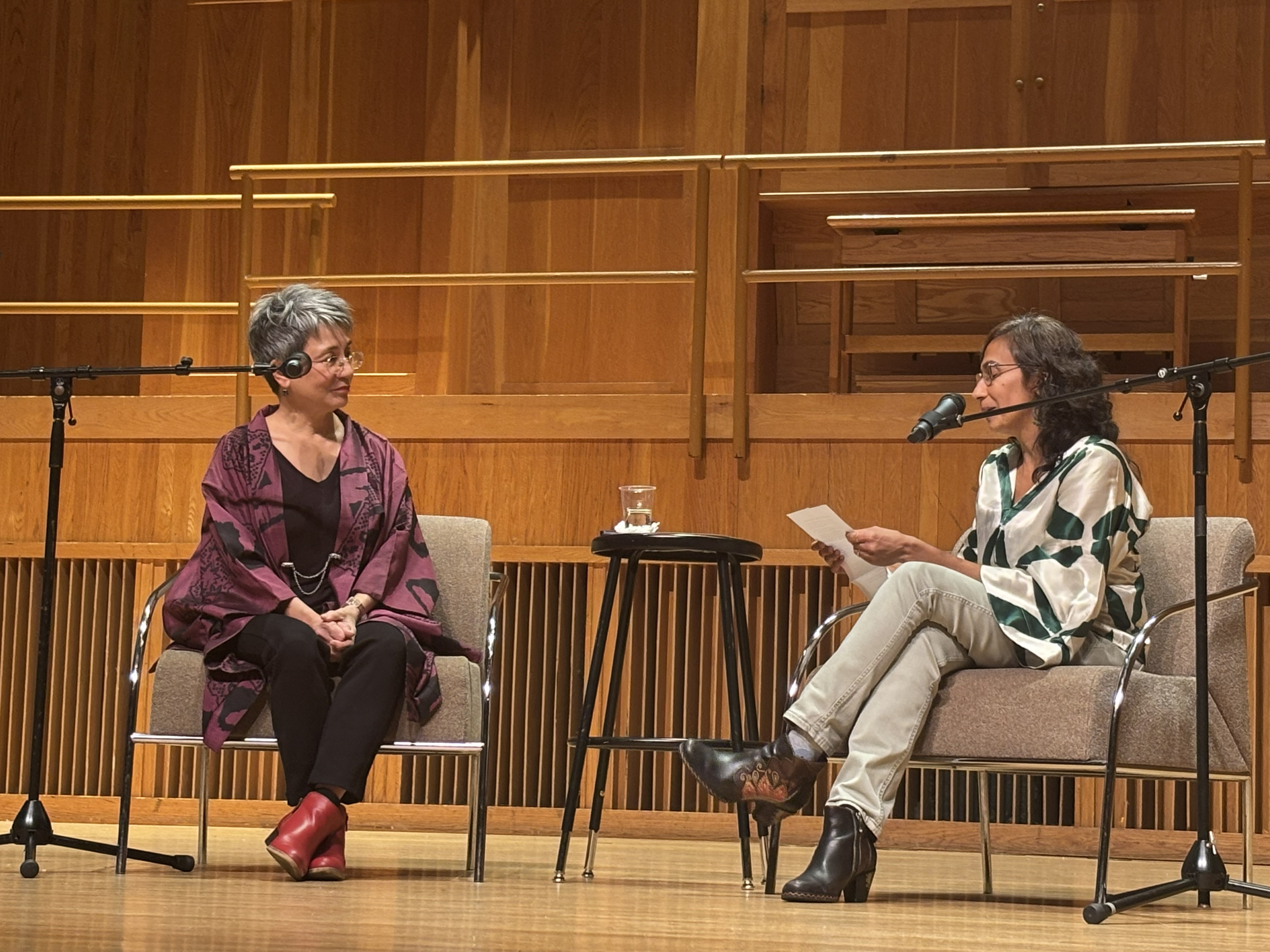
‘A wonderful person’
Nicole Cooley, a professor in the college’s English department and director of the Writers at Queens: The QC Reading Series, has known Hahn since Cooley began teaching at the college in 1999. She organized the event and introduced Hahn on stage for the poetry reading.
“She’s a wonderful person,” Cooley said, who was wearing a pair of earrings gifted to her by Hahn. “I could sing her praises until the end of time. It’s really lovely to celebrate her.”
Cooley said she and Hahn, whose offices at the college are right next to each other, are good friends and often share their work and poetry. She noted Hahn was one of the first writers to introduce zuihitsu, a genre of Japanese literature that serves as the author’s “stream of consciousness,” to contemporary American poetry.
“The range of her work is really fascinating to me,” Colley said. “It goes from personal to political to scientific.”
Hahn pointed this out during the Q&A session with Arora, admitting that for a period of time, she obsessively read the New York Times science section to find inspiration for her poems.
“I was not a good science student,” Hahn said, laughing. “But I love the language of science. For me, the language is exotic and beautiful.”
As the poet laureate of the state for the next two years, Hahn will be reading her poetry, both old and new, at community events, outreach and other political initiatives in an effort to promote the artform’s awareness and appreciation. She said sharing the art of poetry is an important aspect of political activism because it brings meaning and thoughtful reflection to important topics, such as environmentalism, feminism and the rejection of fascism.
Hahn recalled attending a benefit for unhoused persons in which she read a poem about love. She said her intention was to remind attendees that those who are unhoused do not have privacy, and they deserve a loving place to rest their head, play with their children, eat a healthy meal and sleep peacefully.
For those who feel poetry is inaccessible, she said, it’s important to remember that everyone takes away what they want from it. She said she feels as though people might see poetry as a riddle or become uncomfortable because they believe they’re not understanding its meaning.
However, Hahn said reading even one poem a day can unlock a newfound appreciation for the art form, and encouraged others to explore poetry forms that appeal to them.
“If you don’t ‘get it,’ is there something that sparks your interest?” Hahn asked. “Well, then the poem has done its job.”

